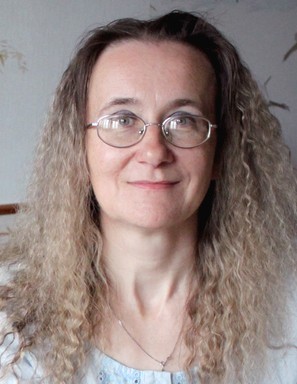
Volha Kalackaja (from the Belarusian PEN Centre, https://pen-centre.by/en/pen.html)
The invisibility of the translator is a commonplace. The profession is notoriously lacking in glamour and recognition. But on occasion translators are put in the spotlight and theirs can become a dangerous profession: not because of excellent work or tireless devotion to tolerance and understanding between all people but because they are seen as purveyors of foreign wickedness.
The past few weeks have seen a growing international outcry over the detention of Volha Kalackaja, a translator of Margaret Atwood, Virginia Woolf, and Tennessee Williams, who was arrested by the Belarus authorities on 15 January 2021, allegedly having participated in organising actions against public order. Belarus is currently in the grip of a political, economic and cultural crisis, further to the Covid-19 pandemic.
This week the Association of Professional Translators and Interpreters of Catalonia (APTIC) has endorsed the call by the International Federation of Translators to respect the civil rights of Volha Kalackaja. Not without a certain degree of controversy, nonetheless. APTIC has a history on the issue of civil rights declarations. In October 2019 Lafede.cat published a manifesto condemning the Spanish Supreme Court sentencing of 12 political and civil leaders of the Catalan independence movement and sought the backing of other organisations. A group of APTIC members called for a special assembly of the association to vote support for the Lafede.cat manifesto. In the event, the proposal was voted down, not without an uneasy division of opinions and several resignations.
Was APTIC right not to endorse the Lafede.cat manifesto? Is APTIC right now to endorse the FIT declaration on Volha Kalackaja? How similar are the two cases? Has Volha Kalackaja been targeted for political activism, for her work as a translator, or for both?
Let me finish, then, by returning to the issue that is the true focus of this post: translation is a dangerous profession. Translators are sometimes at risk for the work we do. Fanatics can take exception. Egregious violent reprisals include:
- In 1991, the murder of Hitoshi Igarashi, who translated Salman Rushdie’s The Satanic Verses into Japanese.
- The persecution and murder of an unknown number of interpreters in recent wars in Iraq and Afghanistan.
- Recent murders of Bible translators.
As Maria Khodorkovsky commented in 2008, in a short article titled Translation: History of a Dangerous Profession
…many interpreters and translators find themselves under fire. In courtrooms and prisons, in times of social and political unrest, chaos, or war, they are direct enemy targets.
From the pages of Tradiling, I support the FIT declaration calling on the Belarus authorities to expedite proceedings against Volha Kalackaja, with full respect for her civil rights.
- Record de la Xesca - 11.06.2024
- Translating for universities - 16.05.2024
- Open expert conversations 2024 - 06.03.2024








